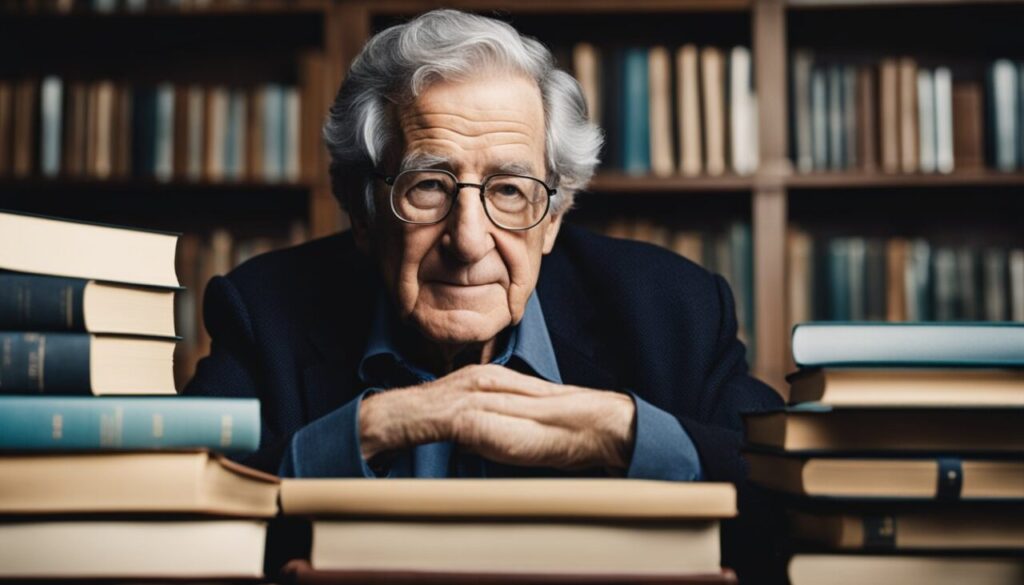
Everybody has heard about famous philosophers from history like Aristotle, Plato, Nietzsche, Kant, or Descartes. It almost seems as though philosophy was a discipline practiced only in ancient times or hundreds of years ago.
However, this is not the case. Philosophy is still very much alive and kicking, but mass media doesn’t talk about it at all.
Therefore, we need to talk about it. More specifically, we need to talk about them—the philosophers.
In this article, we will be discussing the top 5 greatest living philosophers. Of course, there are many great philosophers out there like Peter Singer, Alain Badiou, and many others, but in our opinion, those five mentioned in our list truly deserve to be at the top.
So, without further ado, let’s begin.
Here is the list, without any particular order.
1. Cornel West

Cornel West is an American philosopher, political activist, and social critic. He is known for his work on race, class, and gender issues. West has written several books, including “Race Matters” and “Democracy Matters.”
West is a professor of the Practice of Public Philosophy at Harvard University. He has also taught at several other universities, including Princeton and Yale. West has been an outspoken critic of the American political system and has been involved in several political movements.
Cornel West is a rather prominent figure in modern philosophy and a respected voice on social and political issues.
Here are some key aspects of West’s philosophy:
- Prophetic pragmatism: West’s philosophy is often characterized by what he calls “prophetic pragmatism.” This combines elements of pragmatism with a commitment to social justice and a prophetic critique of societal injustices. West argues for the importance of pragmatism’s focus on concrete problem-solving, while also emphasizing the need for a moral and spiritual dimension in addressing social and political issues.
- Emphasis on justice and equality: Central to West’s philosophy is a deep concern for justice and equality, particularly in relation to issues of race, class, and gender. He critiques systems of power and oppression, advocating for social change to create a more just and equitable society.
- Critique of American society: West is known for his scathing critique of American society, which he sees as deeply flawed and marked by systemic racism, economic inequality, and moral decay. He argues that America’s ideals of democracy and freedom are often betrayed by its actions and policies, and he calls for a more honest reckoning with the country’s history and ongoing injustices.
- Intellectual engagement: West is deeply engaged with a wide range of intellectual traditions, including philosophy, theology, literature, and music. He emphasizes the importance of critical thinking and intellectual curiosity, encouraging dialogue and debate across disciplinary boundaries.
- Spiritual dimension: In addition to his intellectual and political commitments, West is also deeply influenced by his Christian faith. He sees spirituality as integral to his understanding of justice and human flourishing, and he often incorporates religious themes and language into his philosophical and political writings.
Interesting fact: Cornel West has appeared in several films and television shows, including "The Matrix Reloaded" and "30 Rock."
2. Martha Nussbaum
Martha Nussbaum is an American philosopher and professor of law and ethics at the University of Chicago. She is known for her work on political philosophy, feminism, and ethics. Nussbaum has published over 20 books and has received numerous awards for her contributions to philosophy.
One of Nussbaum’s most influential works is “The Fragility of Goodness,” which explores the nature of human vulnerability and the importance of compassion in ethical decision-making. She argues that compassion is essential for creating a just society and that it should be valued as a core human emotion.
Nussbaum is also known for her work on the capabilities approach, which is a framework for evaluating social and economic development based on the capabilities that individuals have to live fulfilling lives. This approach emphasizes the importance of providing individuals with the tools and resources they need to achieve their goals and lead meaningful lives.
Interesting fact: Nussbaum has received prestigious awards such as the 2016 Kyoto Prize in Arts and Philosophy, the 2018 Berggruen Prize, and the 2021 Holberg Prize.
3. Noam Chomsky

Noam Chomsky is probably most famous philosopher on this list. Besides that he is also a linguist, and political activist. Chomsky’s work has had a significant impact on the fields of linguistics, psychology, and philosophy.
Chomsky is best known for his theory of generative grammar, which proposes that language is innate and that humans possess an innate ability to understand and produce language. He has also been a vocal critic of behaviorism, which he believes fails to account for the complexity of human language.
In addition to his contributions to linguistics, Chomsky has been an active political commentator and activist. He has been a vocal critic of U.S. foreign policy and has written extensively on issues such as imperialism, capitalism, and the media.
Some of his famous works are “American Power and the New Mandarins” and “Hegemony or Survival: America’s Quest for Global Dominance“. The former includes his significant essay on the Responsibility of Intellectuals, critiquing the Vietnam War and US foreign policy, while the latter delves into America’s pursuit of global dominance
Interesting fact: Chomsky has been arrested multiple times for his political activism, including his opposition to the Vietnam War.
4. Slavoj Žižek

Slavoj Žižek is a Slovenian philosopher and cultural critic who has made big contributions to the fields of political theory, psychoanalysis, and continental philosophy. He is known for his provocative and controversial ideas that challenge conventional wisdom and offer new perspectives on a wide range of topics.
One of Žižek’s most influential works is his book “The Sublime Object of Ideology,” in which he argues that ideology is not simply a set of false beliefs, but rather a fundamental aspect of our social reality that shapes our perceptions and actions. He also explores the role of ideology in popular culture, analyzing everything from Hollywood films to fast food restaurants.
Žižek has also written extensively on the works of Jacques Lacan, a French psychoanalyst whose ideas have had a significant impact on contemporary philosophy and cultural theory. He has applied Lacanian concepts to a wide range of topics, including film theory, political theory, and the analysis of popular culture.
Interesting fact: Žižek has made several appearances in popular culture, including a presenter in the documentary: "The Pervert's Guide to Cinema".
5. Jürgen Habermas
Jürgen Habermas is a German philosopher who is widely regarded as one of the most influential philosophers of the 20th and 21st century. He is best known for his work in critical theory and communicative action.
Habermas was born in 1929 in Düsseldorf, Germany. He studied at the University of Frankfurt, where he was heavily influenced by the critical theory of Theodor Adorno and Max Horkheimer. Habermas went on to become a professor of philosophy at the University of Frankfurt, where he taught for over 20 years.
Habermas’s work focuses on the importance of communication in society. He argues that communication is essential for creating a just and democratic society. Habermas has also written extensively on topics such as morality, law, and democracy.
Jürgen Habermas’s most important work is his theory of “communicative action,” which he put forth in “The Theory of Communicative Action“. This work is considered a cornerstone of his philosophy and has had a significant impact on various disciplines, including communication studies, cultural studies, moral theory, law, linguistics, literary theory, philosophy, political science, religious studies, theology, sociology, and democratic theory.
Interesting fact: Habermas was awarded the Kyoto Prize in Arts and Philosophy in 2004 for his contributions to the field of philosophy.
Recommendation: If you enjoyed this article you might also like:




























